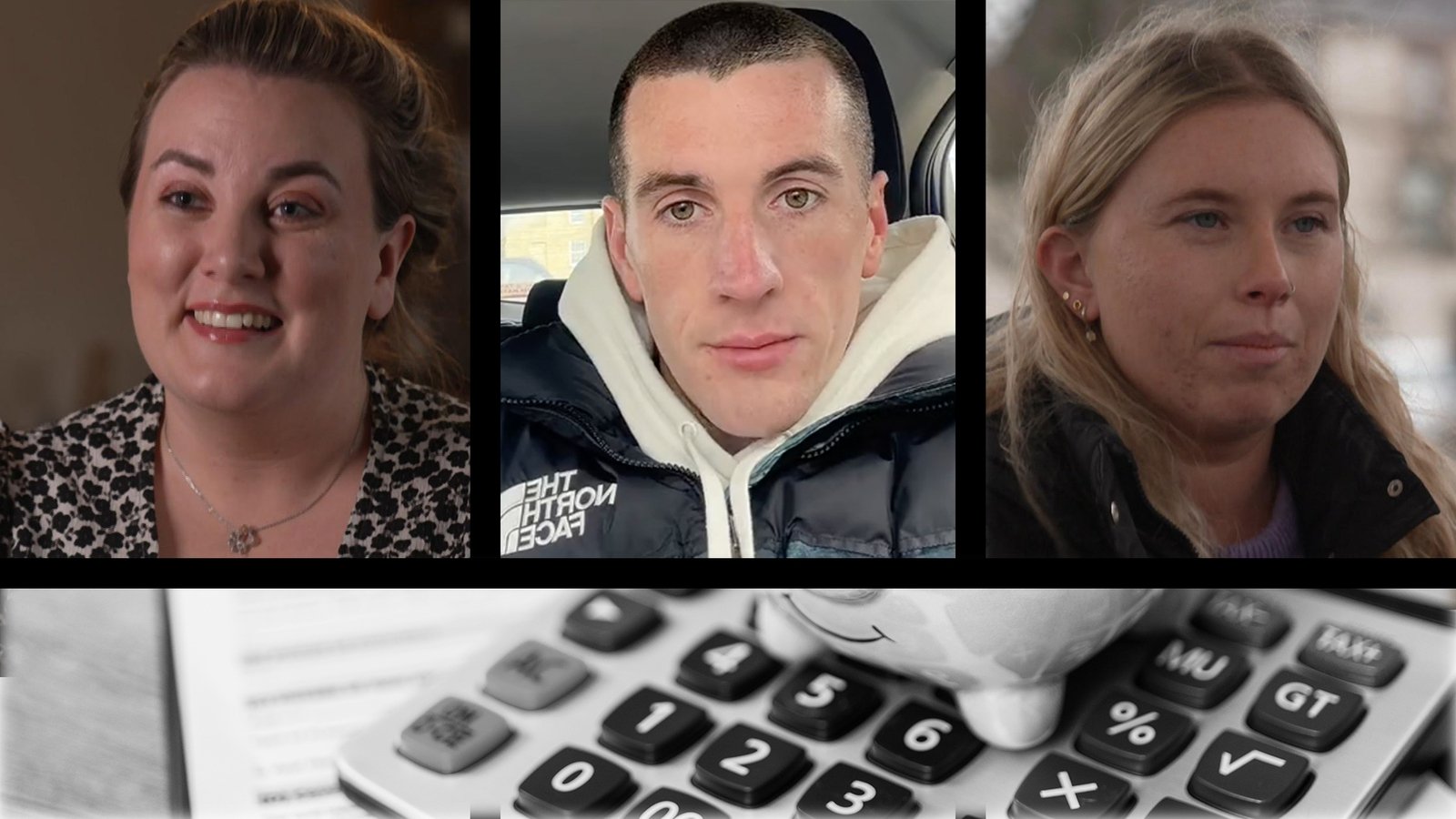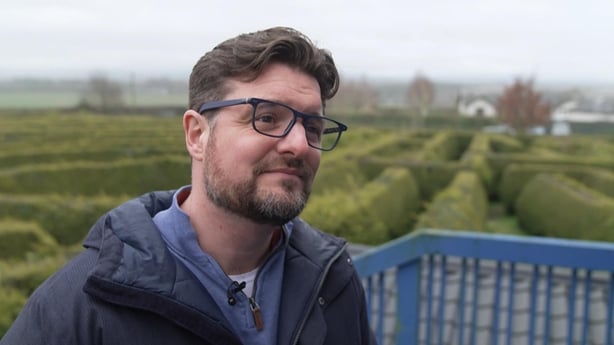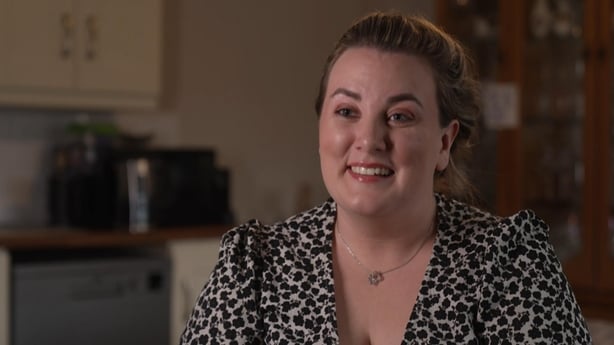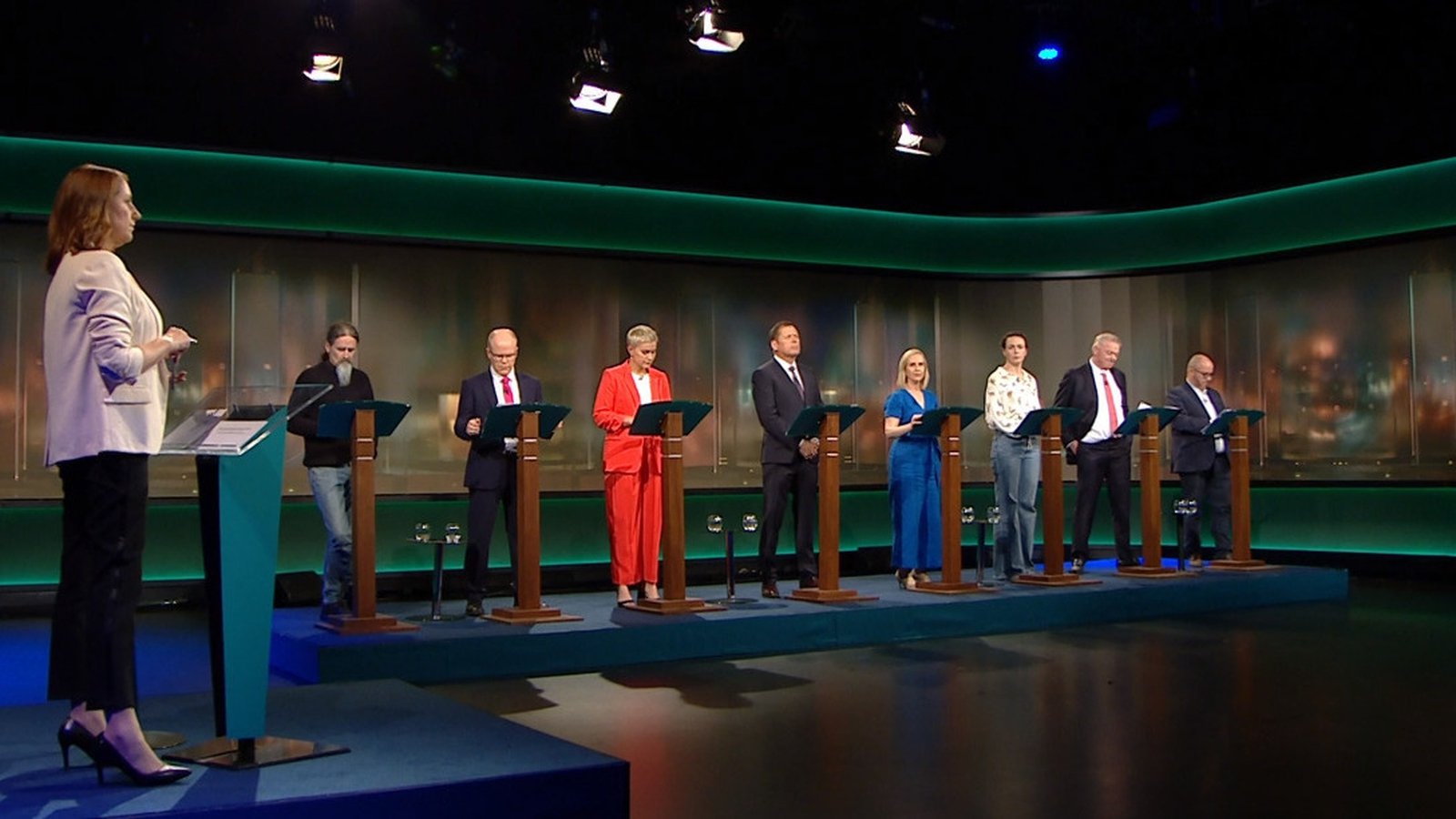The reality of life ‘stuck’ living with parents

Three months ago, 26-year-old Dave Bennett posted a video on TikTok in which he vented about a deep frustration he has about Ireland, one which he shares with many of his peers.
He is one of the 68% of people aged between 18 and 34 who still live at home with their parents.
“I f**king love my parents,” he said. “But you can’t be with someone in that small a space all the time and get on with them and have that nice relationship that you’re meant to have. It’s like Big Brother. You’re basically in Big Brother with your parents, but no one wins €100,000 at the end of it.”
Recorded on his phone in a car near his home in Fermoy, Co Cork, the video struck a chord.
“I was just blown away with the response to it. It got about four million views,” he told Prime Time, “and it wasn’t just people in Ireland that were feeling the same thing. It was people across the world.”
A qualified secondary school teacher, Dave taught in London for two years before moving home 18 months ago. He says it is difficult to find a permanent teaching job outside Dublin, so moving out of his childhood home is not feasible.
According to the 2022 Census, 522,486 young adults like him are still living at home with their parents. Many of them are not there out of choice, but blame high rents, high cost of living, and rising house prices.
Financial advisor Eoin McGee says a young person earning €50,000 a year, who is paying rent and trying to cover the cost of living, will now take just over 15 years to save a deposit to buy the average house.

Domestic tension
In his TikTok video, Dave said, “I love my parents to death. They are amazing. They would do anything for me. They would die in battle for me. But this is not a life that is sustainable.”
He says that he could get a teaching job in Dublin but the cost of renting in the capital makes it unviable. He is now contemplating a move back to London.
“It shouldn’t be as bad here as it is in London,” he told Prime Time. “You’re getting so much more value-for-money in London. You’re in a global city. You have public transport and a better standard of living. So, of course I’m going to pick that as a better option over Dublin.”
Clinical psychologist Dr Maureen Gaffney believes the current phenomenon of young adults living at home in their childhood bedrooms compromises their development. She said it’s very difficult for them to become independent and “learn about themselves by trial and error” when they do not have their own space to live in.
Dave said he was initially excited to be back home but as time goes on tensions build up between adult children and their parents.
“You build up a certain amount of resentment because you’re angry,” he says. “You’re angry that you’re there. You don’t have anyone to direct that anger at, other than the people you live with. So it ends up being them. And that’s sad because I don’t want to be angry at my parents. I have a great relationship with them.”
Aisling Hughes is a home economics and religion teacher in Castleblayney, Co Monaghan. She lives with her mother Dympna and their dog Milo.
She did not expect that she would still be living at home at 28-years-old and dreams of having a place of her own.
Dympna and Aisling say they got on “like a house on fire” but there are times when they would like to be alone.
“Sometimes when I have had an intense day at work, I just want to chill and have my own space. Sometimes it can be difficult to have my own space in a small house,” Aisling said.
“There are more pros than cons to living at home. But being asked to fill up the dishwasher or make your bed can be a bit disheartening and frustrating for a 28-year-old.”

Shannon Kelly-Fitzgerald is in a similar situation near Dungarvan, Co Waterford. She believes her generation are faced with constant stumbling blocks that stunt their development.
“I don’t make enough to move out of home. If you’re saving for a deposit, you can’t pay rent. Even, if you’re looking for somewhere to rent, you can’t find anywhere. So, you are kind of just stuck in a cycle of living at home trying to save,” the 25-year-old teacher said.
Shannon says she has a great relationship with her younger brother and sister, aged 15 and 13. “I love my family, but it’s just different because I don’t want to feel like my teenage brother and sister still living in my childhood bedroom. I’m ten years older than them. I want them to be able to come to my house and have sleepovers.”
Romance and Relationships
Many people we spoke to said living at home complicates not just their relationships with their parents, but also romantic relationships.
Aisling Hughes has had some “awkward conversations” on dating apps when some men ask. “There is a bit of confusion as to why someone might still live at home,” she said.
Eoin McGee pointed out that life becomes difficult for young adults going on “a fourth or fifth date and they’ve nowhere to go back to afterwards.”
“It makes life even more expensive. If you can only date at a restaurant and you’ve nowhere that you can call your own – you have nowhere else to go except somewhere that is going to charge you money for being there – it makes it very difficult just to progress with life stuff.”
Shannon Kelly-Fitzgerald and her boyfriend both still live at home so “you’re coming and going from both houses. And you are bringing bags here and bags there. You don’t ever feel like you’re at home in one place. I basically live out of my car,” she said.
Clinical psychologist Maureen Gaffney says adult children’s relationships can also be an uncomfortable issue for their parents.
“I don’t think most parents will object if a young adult is in what looks like a long-term relationship. They can get to know the partner and they can sort of accommodate the partner staying over and so on,” she said. “But if you’re at the dating stage, most parents don’t want to be coming down for breakfast in the morning with another stranger sitting across from them.”
“So, I think that everything is wrong, really, about young people in their 20s trying to conduct an autonomous romantic relationship or relationships while also living under their parents’ roof.”
‘The Bank of Mum and Dad’
The median age for a first-time buyer is now 35 and many of them can only buy their first home with financial help from their parents.
“A little bit short of 50% of first-time buyers are now getting help from the bank of Mum and Dad,” said Eoin McGee.
“You really have to be above average now to get anywhere on the property ladder, or else you need to get help from the Bank of Mum and Dad. It’s one or the other or a combination of both.”
Gráinne Cassidy runs the Pieces furniture store in Stoneybatter in Dublin city. She regularly has parents coming in to buy sofas so their adult kids can have their own space within the family home.
“And even when their kids are getting into a house, parents are coming in to help contribute to buying pieces of furniture because their kids have spent five years saving for a deposit and they’re at the bottom of the barrel now. There’s nothing left.”
McGee, who is a presenter of The Complaints Bureau TV programme, is concerned that some parents may be over-stretching themselves financially in helping their adult children buy homes.
“I have a big fear for the parent who is handing out the money, because we’ve got emotion and money tied together here,” he said.
“I crunch the numbers and I find you can’t afford to give them this money. You are now going to take away from your own lifestyle. You’re going to take bread and milk off the table when you’re 93 years of age, based on my maths, because you’ve just committed this money.”
Some young adults who cannot afford to buy houses are instead looking for alternative options, such as building living areas in their parents’ back gardens. Such is the housing market currently, it’s even something some parents.
“We found that they’re actually coming to us, looking to build an apartment for themselves in their own garden and giving the house to the kids,” says Cormac Carey, of Lawnpod.ie.
He sells one and two bed studio apartments that cost around €48,000 for a one-bed. They are a more affordable option than a house for some people.
But for young adults whose parents don’t have the space, or who simply don’t want to spend such money to remain so close by, even that’s not an option.
Many of adults of them feel that they are part of a generation left behind and running to stand still.
“It’s hard to keep saving when you don’t know the deadline,” Shannon Kelly-Fitzgerald said.
“You’re just kind of doing it indefinitely, hoping that something will come up, and you might have enough money when something comes up.”
Conor McMorrow and producer Aaron Heffernan’s ‘Going Nowhere’ report features in the Tuesday 19 March edition of Prime Time, broadcast at 9.35pm on RTÉ One television.





